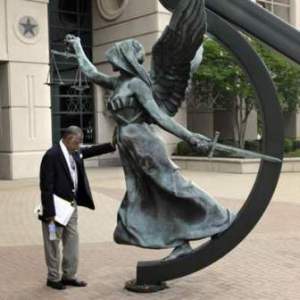Thinking Biblically about Social Justice (5)

June 9, 2010

Kevin DeYoung has continued to explore the issue of social justice through the lens of Scripture. He has been examining those texts of Scritpure that are most often cited in connection with social justice. In his latest post he deals with Micah 6:8.
We come to the beloved words of Micah 6:8, our sixth well known “social justice” passage.
Micah 6 begins with a covenant lawsuit against Judah (“plead your case” – v. 1). Later the question is asked, “With what shall I come before the Lord?” (v. 6) Should God’s people bring a burnt offering or a thousand rams or a river of oil? (6-7) Is perfunctory ritual obedience pleasing to God? No! “He has told you, O man, what is good” (8). The Lord requires that his people do justice, love kindness, and walk humbly with their God.
But what does it mean to “do justice”? That’s the million dollar question. And it must be answered exegetically. Thankfully, Micah unpacks his notion of justice by chastising Judah for all her injustice.
Some in Judah were coveting fields and seizing them, oppressing others through corruption and lawbreaking (2:2). “The chief offenders,” argues Ralph Smith in his Micah-Malachi Commentary (WBC), “were a relatively small group of greedy, powerful business men who spent their nights devising schemes to get possession of the land of the small farmers. The next day they carried out their schemes because they had sufficient economic, political and judicial power to accomplish their goals even when their goals deprived a man and his household of their inheritance which was a part of covenant right” (24). In other words, these men were land-grabbers, taking what they did not own. And they had the power to get away with it. They weren’t just buying land, they were stealing it, in violation of the eighth commandment and in opposition to the stipulations about safeguarding a family inheritance.
In chapter 3, Micah inveighs against the “heads of Jacob and rulers of the house of Israel” (1). This is probably a reference to the local magistrates who made judgments in the gate of the city. These men were like circuit court judges, responsible for administering blind justice that paid no attention to the status of the supplicant. But tragically, these men did not “know justice.” They hated the good and loved the evil (v. 2). They acted like cannibals toward their own people, chewing them up with their perverted power (1-3). They seem to have been especially cruel to the helpless poor (v. 5).
Shot through this corruption was a greedy love of money. The “heads” made decisions based on bribes. The priests taught for a price. And the prophets practiced divination for money (11). As we’ve seen time after time in these “social justice”
passages, the classic form of injustice is siding with the rich against the poor because the former will pay you for it and the latter cannot do anything to stop you. The rich, for Micah and the prophets in general, tend to be greedy bribers who take land by force, speak lies to get their way, and oppress the poor to increase their wealth (6:11-12). This is the sort of rich person the Lord disdains.
So what does Micah, and the Lord through him, mean by “doing justice”? He means we should not steal, bribe, or cheat. Conversely, we should, when we are in the position to do so, render fair and impartial judgments. And at all times in whatever calling, we should do good, not evil.




